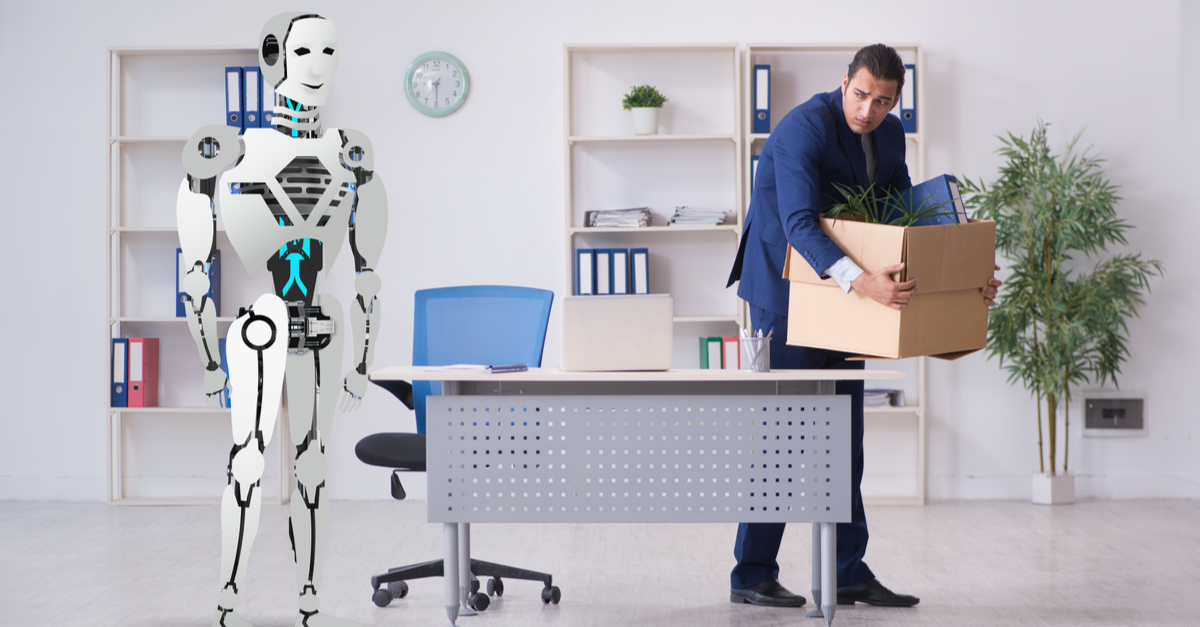
The rise of artificial intelligence (AI) is rapidly changing the landscape of the modern workplace. While many people fear that robots and automation will take over their jobs, the truth is that AI has the potential to improve productivity, reduce costs, and create new opportunities. To stay ahead in the evolving workplace, it’s essential to prepare for the AI takeover. Whether you’re a business owner, a manager, or an employee, understanding how AI is transforming your industry and developing the skills to work alongside machines is critical. In this article, we’ll explore some practical strategies for preparing for the AI revolution, including upskilling, embracing new technologies, and fostering a culture of innovation. With the right approach, you can stay ahead of the curve and thrive in the age of AI.
The Evolution of Jobs in the Age of AI
The emergence of AI has transformed the nature of work. Jobs that were previously done by humans are now being automated, and new job roles are emerging. AI is capable of performing repetitive tasks more efficiently than humans, freeing up time for more creative and complex work. However, this also means that some jobs may become obsolete, and workers who do not adapt to the new reality may be left behind. It is essential to understand how AI is changing the job market, and what skills are needed to succeed in the AI-driven workplace.
The rise of AI has given birth to new job titles such as machine learning engineers, data scientists, and AI ethicists. These job roles require a combination of technical and analytical skills, including programming, data analysis, and critical thinking. However, it’s not just technical skills that are in demand. Soft skills such as communication, collaboration, and adaptability are equally important in the age of AI. With machines taking over routine tasks, workers must be able to work alongside AI, leveraging its capabilities to create value.
To succeed in the age of AI, it’s crucial to understand the evolving nature of work. Upskilling and reskilling are necessary to stay relevant, and workers must be willing to adapt to new technologies and ways of working. In the next section, we’ll explore some practical strategies for preparing for the AI revolution.
Skills Needed to Succeed in an AI-Driven Workplace
As AI becomes more prevalent in the workplace, the skills needed to succeed are changing. While technical skills are still essential, soft skills such as creativity, critical thinking, and emotional intelligence are becoming increasingly important. These skills are essential for working alongside AI and leveraging its capabilities to create value.
One of the most critical skills for success in an AI-driven workplace is data analysis. With the rise of big data, workers who can analyze and interpret data are in high demand. Data analysis requires a combination of technical and analytical skills, including programming, statistics, and data visualization. However, it’s not just technical skills that are essential. Workers must also be able to communicate their findings effectively, using data to inform decision-making.
Another essential skill for success in the age of AI is adaptability. With machines taking over routine tasks, workers must be able to adapt to new technologies and ways of working. This requires a growth mindset and a willingness to learn new skills. Workers who are adaptable and open to change are more likely to succeed in the AI-driven workplace.
Finally, creativity and critical thinking are critical skills for success in the age of AI. While machines can perform routine tasks more efficiently than humans, they still lack the creativity and intuition of humans. Workers who can think critically and creatively are more likely to succeed in roles that require problem-solving and innovation.
How to Prepare for the AI Revolution
Preparing for the AI revolution requires a combination of upskilling, embracing new technologies, and fostering a culture of innovation. Here are some practical strategies for preparing for the AI takeover:
Upskilling and Reskilling
Upskilling and reskilling are essential for staying ahead in the age of AI. Workers must be willing to learn new skills and adapt to new technologies. This requires a growth mindset and a willingness to invest in training and development. Employers can facilitate upskilling and reskilling by providing training programs and opportunities for on-the-job learning.
Embracing New Technologies
To stay ahead in the age of AI, it’s essential to embrace new technologies. This means investing in AI tools and platforms and being open to experimentation. Employers can facilitate the adoption of new technologies by creating a culture of innovation, where experimentation and risk-taking are encouraged.
Fostering a Culture of Innovation
Creating a culture of innovation is essential for preparing for the AI revolution. This requires a mindset shift, where failure is seen as an opportunity to learn and grow. Employers can foster a culture of innovation by providing resources and support for experimentation and by recognizing and rewarding creative thinking.
AI and the Future of Work
AI is transforming the future of work in many ways. While some jobs may become obsolete, new job roles are emerging, and existing jobs are evolving. AI has the potential to improve productivity, reduce costs, and create new opportunities. However, it’s essential to prepare for the AI revolution by developing the skills needed to work alongside machines. By embracing new technologies, fostering a culture of innovation, and upskilling and reskilling, workers can stay ahead of the curve and thrive in the age of AI.
Conclusion: Embracing the AI Revolution
The rise of AI is transforming the modern workplace, and it’s essential to prepare for the AI revolution. By developing the skills needed to work alongside machines, workers can stay ahead of the curve and thrive in the age of AI. Upskilling and reskilling, embracing new technologies, and fostering a culture of innovation are essential strategies for preparing for the AI takeover. By embracing the AI revolution, workers can unlock new opportunities and create a better future of work.

